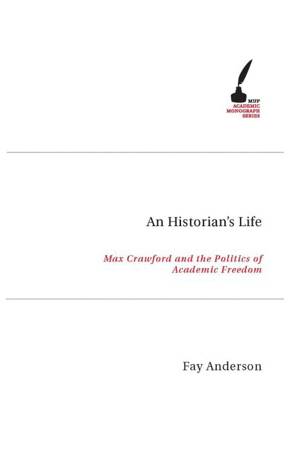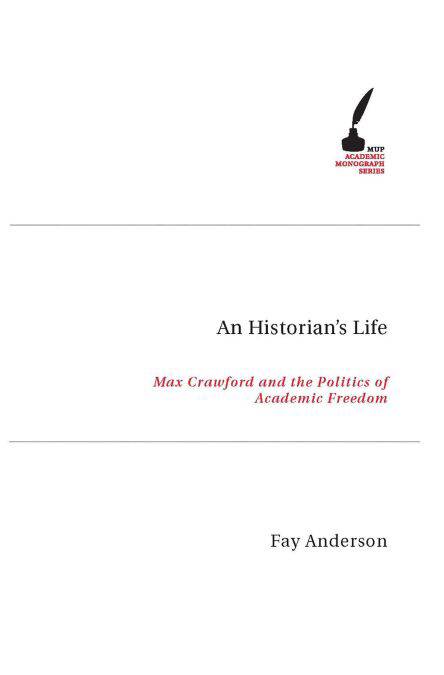
- Afhalen na 1 uur in een winkel met voorraad
- Gratis thuislevering in België vanaf € 30
- Ruim aanbod met 7 miljoen producten
- Afhalen na 1 uur in een winkel met voorraad
- Gratis thuislevering in België vanaf € 30
- Ruim aanbod met 7 miljoen producten
Zoeken
Historian's Life E-BOOK
Max Crawford and the Politics of Academic Freedom
Fay Anderson
E-book | Engels
€ 21,80
+ 21 punten
Omschrijving
Max Crawford was one of Australia's pre-eminent historians. As both a participant in and observer of many decisive episodes of the era; Europe in the midst of the Depression, America and Russia at the height of World War II, post-war reconstruction and the Cold War in Australia, Crawford was regarded as a radical; and outspoken defender of intellectual autonomy. This biography considers Crawford as an historian and a public intellectual. It relates his experiences as a student at Sydney and Oxford, a struggling teacher during the Depression, as the head of the History School at the University of Melbourne, a diplomat in wartime Russia, and a Cold War victim and accuser. The study of Crawford's life provides insight into one man's experience in the midst of political turmoil and the limits of intellectual autonomy on Australian campuses, as well as the suspicion of liberal intellectuals in Australian public life, the repression of academic radicals and ASIO's attempts to stifle dissident voices. Spanning his life (1906 -1991), Crawford's political and intellectual journey suggests the changing nature of Australian progressive liberalism and the precarious state of academic freedom.
Specificaties
Betrokkenen
- Auteur(s):
- Uitgeverij:
Inhoud
- Aantal bladzijden:
- 410
- Taal:
- Engels
Eigenschappen
- Productcode (EAN):
- 9780522851540
- Verschijningsdatum:
- 27/04/2017
- Uitvoering:
- E-book
- Beveiligd met:
- Adobe DRM
- Formaat:
- ePub

Alleen bij Standaard Boekhandel
+ 21 punten op je klantenkaart van Standaard Boekhandel
Beoordelingen
We publiceren alleen reviews die voldoen aan de voorwaarden voor reviews. Bekijk onze voorwaarden voor reviews.







